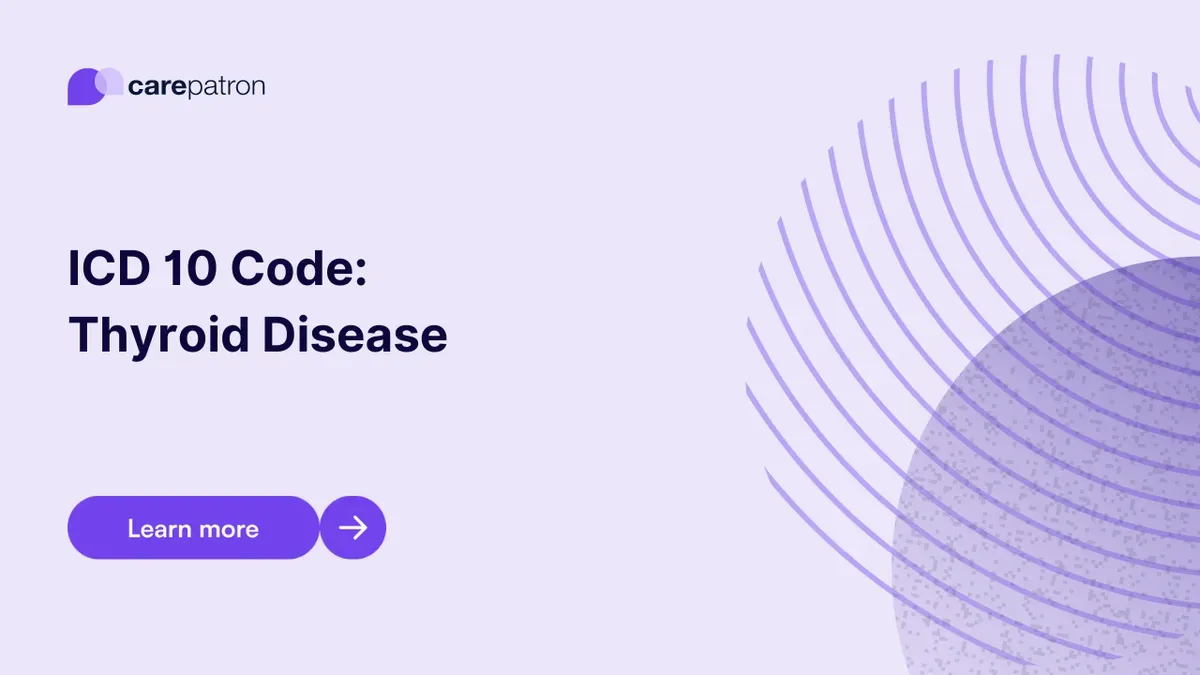What thyroid disease ICD codes can I use?
Here are thyroid disease ICD-10 codes you can utilize for your patients:
- E05.00 - Thyrotoxicosis with diffuse goiter without thyrotoxic crisis or storm
This code is used for patients with thyrotoxicosis accompanied by diffuse goiter but without complications like thyrotoxic crisis or storm.
- E05.01 - Thyrotoxicosis with diffuse goiter with thyrotoxic crisis or storm
Similar to Item 1, this code indicates the presence of thyrotoxicosis with diffuse goiter along with thyrotoxic crisis or storm.
- E05.10 - Thyrotoxicosis with toxic single thyroid nodule without thyrotoxic crisis or storm
This code is assigned to patients confirmed to have thyrotoxicosis along with a toxic single thyroid nodule but without complications like thyrotoxic crisis or storm.
- E05.11 - Thyrotoxicosis with toxic single thyroid nodule with thyrotoxic crisis or storm
Similar to Item 3, this code indicates the presence of thyrotoxicosis with a toxic single thyroid nodule along with thyrotoxic crisis or storm.
- E03.9 - Hypothyroidism, unspecified
This code is used for patients diagnosed with hypothyroidism, where the specific cause or type is not specified. Note that other hypothyroidism ICD-10 codes are available, so if the specific type has been determined, it is advisable to use a more specific code.
- E89.0 - Postprocedural hypothyroidism
This code is used for patients who develop hypothyroidism after a certain procedure or intervention.

